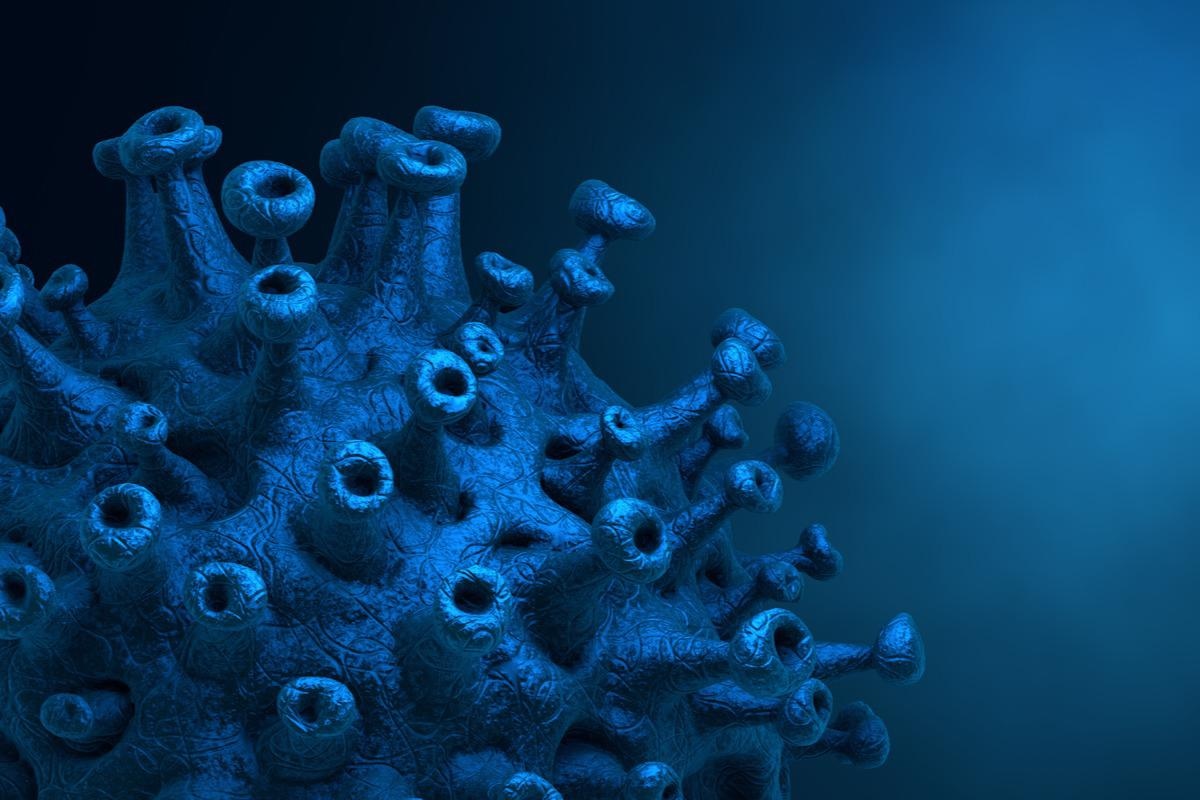Severe acute respiratory syndrome coronavirus 2 (SARS-CoV-2), a zoonotic beta coronavirus, causative microbe of coronavirus disease 2019 (COVID-19) transmits via respiratory droplets.
Vaccines have aided in controlling the pandemic and some have even gained approval from the Food and Drug Administration (FDA). Meanwhile, certain oral therapeutics like Molnupiravir and Paxlovid, await full approval and are being used under Emergency Use Authorization (EUA).
 Study: Fractionation of sulfated galactan from the red alga Botryocladia occidentalis separates its anticoagulant and anti-SARS-CoV-2 properties. Image Credit: CROCOTHERY/Shutterstock
Study: Fractionation of sulfated galactan from the red alga Botryocladia occidentalis separates its anticoagulant and anti-SARS-CoV-2 properties. Image Credit: CROCOTHERY/Shutterstock
Background
The heparin-binding site in the spike (S)-protein of SARS-CoV-2 binds to the heparin sulfate (HS) chain in human angiotensin-converting enzyme 2 (h ACE2) receptors, facilitating entry into the host cells. Sulfated glycans like non-coagulant heparin, unfractionated heparin, and HS-based molecules, are likely to bear anti-SARS-CoV-2 action; however, heparin and derivatives trigger severe side effects.
Recent reports suggest anti-SARS-CoV-2 affects non-heparin sulfated glycans, including those derived from marine sources. Evidence of actions of sulfated polysaccharides against the Wuhan (wild-type) strain is available in literature. Non-heparin sulfated glycans possessing anti-SARS-CoV-2 effect have been studied against the SARS-CoV-2 Wuhan strain. Data on more infectious mutants of SARS-CoV-2 remains unknown.
Alpha (B.1.1.7), Beta (B.1.351), Gamma (P.1), Delta (B.1.617.2), and Omicron (B.1.1.529) variants of SARS-CoV-2, which harbor greater virulence, transmissibility, and immune escape have been considered the variants of concern (VOC). All these VOCs (except Delta) are associated with N501Y mutation—facilitating the emergence of lineages possessing additional mutations like triple mutated Gamma SARS-CoV-2 variant—reported in Brazil.
Sulfated glycan isolated from Botryocladia occidentalis – the red alga, is called BoSG (B. occidentalis-derived sulfated galactan), which possesses antiviral, anticoagulant, antithrombotic, and antimalarial effects. It has a homogenous backbone but is heterogenous considering the sulfation patterns.
The study
A new study published in the Journal of Biological Chemistry pre-proof analyzed BoSG and its low molecular weight derivatives for their anticoagulant, anti-SARS-CoV-2, S-protein binding, and structural properties.
For this study, crude polysaccharides were derived from the cell wall of B. occidentalis utilizing nonspecific proteolytic digestion. Polysaccharides were fractionated through chromatography. The BoSG was then eluted and its structural integrity confirmed.
Results
Sulfated galactan of B. occidentalis has potent antithrombotic, anticoagulative, and antiviral effects. Considering the sulfation patterns, BoSG has a heterogeneous structure; sulfation occurs at varying degrees and at different sites.
Mild acid hydrolysis of BoSG produced oligosaccharides with different molecular weights and sizes. It can be inferred that the glycosidic bonds of BoSG were nonspecifically cleaved. Additionally, the chemical depolymerization caused selective desulfation of BoSG.
Four random BoSG oligosaccharide fractions (Fr1, Fr2, Fr3, and Fr4) were pooled. It was found that monosulfated/monosaccharides are the major components of Fr4, whereas the oligosaccharide component of Fr4 is mainly an octasaccharide. The structural heterogeneity of the fragments was demonstrated.
On investigating the anticoagulant systems with low molecular weight BoSG derivatives, a dependency of the anticoagulation property on the molecular weight of BoSG was found. Native BoSG demonstrated significant anticoagulation activity whereas BoSG derivatives exhibited moderate anticoagulant activity in the activated partial thromboplastin time (aPTT) system.
Although the BoSG, low-molecular weight derivatives revealed a weak residual anticoagulation effect, they should be monitored for side effects before clinical trials and use. Protamine sulfate can neutralize the anticoagulant effect of sulfated glycans. It is known that low-molecular weight heparin (LMWH)-based treatment is safe. Here, the researchers hypothesized that the effect of BoSG fragments is similar to that of LMWH.
The results indicated the serpin-dependent anticoagulation action are dominated by the template mechanism (compared to the allosteric mechanism) and that multiple proteases and serpins could be held by longer BoSG chains. Smaller chains of BoSG impacted its effect on the coagulation factors resulting in a reduced serpin-dependent anticoagulation activity. It was inferred that low molecular weight BoSG demonstrates reduced anticoagulation effect via the serpin-dependent mechanism.
It was observed that a medium-sized BoSG oligosaccharide was capable of inhibiting S-protein receptor-binding domain (RBD) interaction with HS and hACE2. Of note, anti-SARS-CoV-2 activity was not majorly impacted by the decrease in molecular weight of BoSG.
In addition, a minimal impact on the anti-SARS-CoV-2 activity was detected with desulfation and molecular weight. It was found that longer BoSG chains facilitate the inactivation and interaction of numerous blood proteases with the same glycan chain. On the other hand, medium-sized BoSG chains with N501Y mutation in S-protein RBD inhibit heparin-binding resulting in viral inhibition.
Docking of BoSG to the N501Y VOC S-protein revealed negative scores – suggesting a favorable binding to the site near the 501Y residue. Moreover, heparin and BoSG disaccharide interact with the N501Y S-protein RBD with identical binding poses, but with different poses than those of the three other BoSG disaccharides.
From the findings, it was inferred that monosaccharide composition and sulfation impacted the binding properties of BoSG and heparin to S-protein RBD sites close to the 501Y residue.
Conclusion
Native BoSG has significant anti-SARS-CoV-2 as well as anticoagulation effects. Ideally, anti-SARS-CoV-2 sulfated glycans must not impact coagulation; thus, conferring more specific antiviral activity to the polysaccharide. In this experiment, depolymerization aided in abolishing the anticoagulant effect of BoSG-derived oligosaccharides without hampering their action against the SARS-CoV-2.
The BOSG and low MW derivatives exhibited great selectivity for the SARS-CoV-2 N501Y variants’ S-protein RBDs. Therefore, red algal sulfated glycans harbor selective properties against the novel coronavirus, which may be of importance especially due to the absent anticoagulant action.